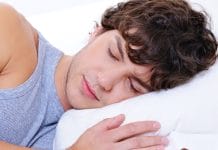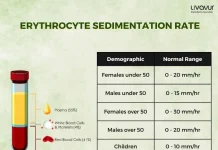This article is reviewed by an expert

Anorexia nervosa, commonly known as anorexia, is an eating disorder characterised by an intense preoccupation with weight and food. People struggling with anorexia often develop a distorted body image, perceiving themselves as overweight despite being underweight (1).
If you are suffering from anorexia nervosa, then you have come to the right place. Find here everything you need to know about anorexia as well as its treatment in Ayurveda in this article.
Causes of Anorexia Nervosa (1)
The causes of anorexia nervosa are not fully understood by experts. However, it often begins as a regular dieting behaviour that gradually progresses into extreme and unhealthy weight loss. People with anorexia may resort to extreme dieting and engage in food-limiting tricks out of a deep fear of gaining weight.
Types of Anorexia Nervosa (1)
Anorexia nervosa is classified into two subtypes, each characterised by distinct patterns of behaviour:
Restrictor Type
The first subtype of anorexia is the “restrictor type.” People with this type severely limit their food intake, particularly avoiding foods high in carbohydrates and fats. They may meticulously count calories, restrict portion sizes, and adhere to rigid dietary rules. These restrictive behaviours are often driven by a desire for control and a fear of weight gain.
Bulimic (Binging and Purging) Type
The second subtype is the “bulimic type.” People with this subtype engage in episodes of binge eating, consuming large amounts of food in a short period. Following a binge, they feel a strong urge to eliminate the food from their bodies. This can involve self-induced vomiting, misuse of laxatives, or other methods to clear their bowels. People with bulimic-type anorexia often experience feelings of guilt, shame, and loss of control during these episodes.
Symptoms of Anorexia Nervosa (1)
The symptoms of anorexia nervosa can present themselves in three distinct forms:
- Food or weight-related symptoms, such as altered body image, low body weight, extreme fear of becoming fat, excessive physical activity, denial of hunger, fixation with food preparation, and unusual eating behaviour
- Physical symptoms, such as poor nutritional status, dehydration, being very thin, stomach pain or bloating, constipation, lethargy or fatigue, sensitivity to cold temperatures, fine and downy body hair (lanugo), dry or yellowish skin, thinning hair, and brittle nails
- Emotional symptoms, such as withdrawal from social situations, loss of interest in sex, irritability, mood changes, and depression
Diagnosis of Anorexia Nervosa (1)
The first diagnosis of anorexia nervosa is usually done by concerned family members, teachers, and coaches who may see your unusual weight and behaviour.
Later on, when you approach a healthcare provider, they will mostly inquire about your medical history, conduct a physical examination, and may recommend psychological testing to diagnose anorexia nervosa.
Modern Treatment of Anorexia Nervosa (1)

Anorexia nervosa is treated through a comprehensive approach that takes into account various factors, including age, overall health, medical history, symptoms, and individual circumstances. The modern treatment methods for anorexia nervosa usually include:
Nutrition Counselling: It helps to guide you towards making healthy food choices and restoring proper nutrition while maintaining a healthy weight.
Therapy: Therapy is an essential component of treatment for anorexia nervosa. It helps you develop effective coping strategies, improve emotional well-being, and address underlying psychological factors.
Medication: In some cases, medication may also be prescribed to manage concurrent mental health conditions such as depression and anxiety, which frequently coexist with anorexia nervosa.
Ayurvedic Treatment of Anorexia Nervosa
Ayurveda also offers various treatments for anorexia nervosa. According to Ayurveda, anorexia nervosa is associated with the Vata Dosha and hence the treatment usually focuses on balancing Vata and restoring overall well-being.
Some common Ayurvedic treatments and approaches for anorexia nervosa include:
Ayurvedic Therapies: Therapies like Sneha (oleation), Sweda (sudation), Abhyanga (oil bath and massage), Basti (enema), Sneha Virechana (oily purgatives), Shirobasti and Shirosneha (oiling the head), Snaihika Dhuma (lubricating smoke inhalation), Sneha Gandusha (lubricating mouth gargles), and Snehika Nasya (lubricating oily nasal drops) are generally used to balance Vata Dosha and improve digestion 2.
Diet: Diet plays an important role in Ayurvedic treatment. For anorexia nervosa, Ayurveda recommends consuming soups, milk, juice of sour fruits, and fatty foods to help stimulate the digestive fire and nourish the body 2.
Herbal Remedies: Ayurveda also recommends using herbs such as Pippali, Haritaki, Chavya, Chitraka, Shunti, Maricha, Ajamoda, Bhallataka and Hingu to balance Vata and treat anorexia nervosa 3. Additionally, bulk-promoting herbs like Ksheer Vidari, Ashwagandha and Vidarikanda are also used to support nourishment and strength.
Meditation and Relaxation: Ayurveda recognizes the importance of mental and emotional well-being. Therefore, it strongly recommends meditation and relaxation techniques to manage stress, improve emotional balance and promote overall wellness. This is also supported by emerging research 4.
Yoga Therapy: There is plenty of evidence for the efficacy of yoga therapy to treat anorexia nervosa as it has been tested in several studies in recent decades. A study by researchers from Cincinnati Children’s Hospital, US, found that regular yoga practice could be used as an effective adjunct therapy for outpatients with eating disorders reducing anxiety, depression and body image disturbance 5.
Disclaimer: Always consult a qualified Ayurvedic practitioner before using any therapy or herb, as each person’s body constitution is different.
The Final Takeaway
Anorexia nervosa is a challenging disorder. It usually serves as a coping mechanism for managing stress, anxiety, and low self-esteem, leading you to adopt unconventional eating patterns. By restricting food intake, you may gain a sense of control over your life, although this control is ultimately detrimental to your health.
Therefore, it is important to recognize the signs and symptoms of anorexia and avail of the treatment on time before it starts impacting the quality of your life.
FAQs
- What are the common risk factors for anorexia nervosa?
Having a family history of health problems like weight problems, physical illness, and mental health problems such as depression and substance use disorder can increase the risk of anorexia nervosa.
Other risk factors of anorexia nervosa include social influence, genetics, brain chemical imbalances, and participation in sports and activities that emphasise body shape and size, such as ballet, bodybuilding etc. can also increase the risk of developing anorexia nervosa.
- What are the complications of anorexia nervosa?
If not treated on time, anorexia nervosa can have severe and potentially life-threatening complications such as anaemia, arrhythmias, slow heart rate, heart failure, mitral valve prolapse, low blood pressure, kidney conditions, electrolyte imbalance, menstrual problems in women, low testosterone in men, bone loss, and even death.
- How can you prevent the development of anorexia nervosa in your loved ones?
- Foster healthy attitudes and actions around weight, food, exercise, and appearance within the family.
- Help children and teens build self-esteem through activities, such as academics, hobbies, and volunteer work.
- Promote a balanced approach to health and wellness rather than an extreme focus on weight or body shape.
- Provide education and awareness about the signs, symptoms, and risks of anorexia nervosa.
- Encourage open communication and support within the family to address any concerns or issues related to body image or disordered eating.
Disclaimer: This article is written from a health and lifestyle perspective. It is for general information and not meant to substitute any medical advice. Please consult your doctor for appropriate medical consultation.
References
- https://www.hopkinsmedicine.org/health/conditions-and-diseases/eating-disorders/anorexia-nervosa
- https://www.wjpps.com/wjpps_controller/abstract_id/5812
- https://www.phytojournal.com/archives/2019/vol8issue4/PartBC/8-3-372-854.pdf
- https://neurosciencenews.com/mindfulness-anxiety-anorexia-22439/
- https://jeatdisord.biomedcentral.com/articles/10.1186/s40337-016-0130-2
















